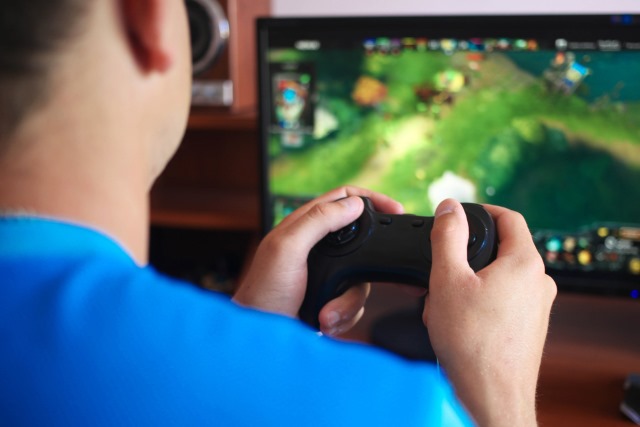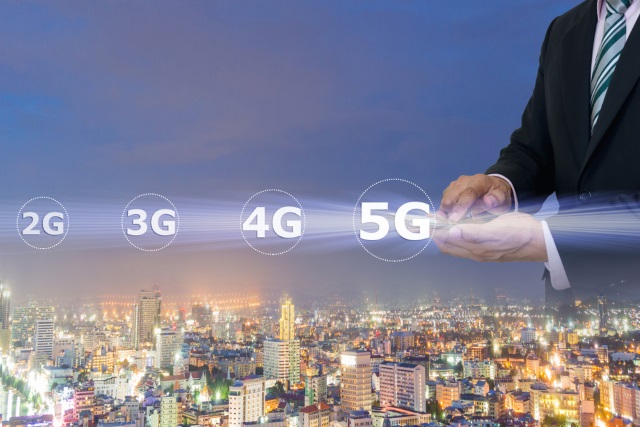
AI and what it means for humanity
We hear a lot about what artificial intelligence means for business and research, how it can speed up and streamline tedious processes and so on.
But if machine intelligence is going to be our new normal how does that affect what it means to be human? Emeritus professor of mathematics at Oxford University, John C. Lennox has written a new book exploring these questions. In this exclusive extract he looks at how our brains compare to computers.

Less development please, we're British and we have coronavirus
New research from DevOps automation specialist Sonatype has discovered that software development activity in the UK decreased by 28 percent since February.
However, the UK position contrasts with some other countries where development activity has continued to grow in the midst of the pandemic. Notably, this includes the United States with a six percent increase and Germany with a 12 percent increase since January 2020.

Remote working doesn't help productivity
Although home workers have spent more hours in front of their computers than before the pandemic, the extra hours haven't translated into increased productivity according to a new study.
The report from digital experience management company Aternity looks at the extent to which remote employee productivity is affected by application performance. It also examines which applications work better in the home compared to the office.

Make good use of your lockdown with free 'Learn From Home Day'
If you fancy using your increased time at home to learn some new skills but haven't got around to it yet, you are about to run out of excuses.
This Wednesday, May 13th, sees the launch of Codeacademy's Learn From Home Day a set of interactive classes on a range of different topics, organized in partnership with other enterprises. From 10:45 am to 5:45 pm ET there will be a choice of sessions covering subjects as diverse as coding, drawing, cooking, parenting and more.

Gaming helps people cope with lockdown -- but at a cost
A new survey, commissioned by cybersecurity company BullGuard, has revealed that gamers are taking advantage of the social isolation to up their playing time
By doing so, 49 percent say they are alleviating lockdown anxiety, 84 percent are understandably relieving their boredom, while 60 percent are battling it out online to help block out the current situation.

New free tool makes it easy to create videos for work and education
The current shift to remote work and distance learning has meant many professionals and teachers communicating for the first time using recorded video.
But the complex steps and costly tools required to capture high-quality presentations are a barrier to them sharing their videos with colleagues and students. Seattle-based Panopto is launching a new, free tool to help people make video presentations by simply visiting a website.

Remote operation changes the working day
The shift to working from home has had a major impact on people's lives, but one of the unexpected effects is how it has changed the working day.
New research from digital experience management company Aternity shows that in the Northeast and West regions of the US the working day starts and ends between 30 and 60 minutes later for remote workers compared to those in offices.

Counting the human cost of data breaches
Around 30 percent of employees who have been involved in the aftermath of a cyber incident have missed an important personal event. Some had to work overnight (32 percent) or suffered additional stress (33 percent), while 27 percent have had to cancel vacations.
A new report from Kaspersky highlights the human side of cybersecurity incidents by examining the discomfort and losses employees face following corporate breaches.

How is the internet handling increased traffic during the COVID-19 crisis?
With the current COVID-19 pandemic leading to increased demand for online services there have been concerns about the web's ability to cope.
New analysis by Fastly of traffic patterns between January and March looks at regional trends for key US states and countries around the globe that are some of the most impacted by the COVID-19 pandemic.

How do you make a developer happy? Use DevOps
There's a clear correlation between DevOps and developer job satisfaction, with developers working within mature DevOps practices 1.5 times more likely to enjoy their work, according to a new study.
The seventh annual DevSecOps Community Survey from Sonatype also shows that those with mature DevOps practices are 1.6 times more likely to recommend their employer to prospects -- critical at a time when the industry continues to face an acute skills shortage.

Grand National goes virtual to give fans their racing fix
The Grand National is a highlight of the British sporting calendar. An event that prompts people who never normally bet on a horse race to venture a few pounds at the bookies or take part in a workplace sweepstake.
With this year's race canceled due to the coronavirus it looked like they might miss out, but virtual reality is coming to the rescue.

CISOs motivated by being guardians of their businesses
What gets CISOs out of bed in the morning is knowing that they are keeping their organizations safe, according to a new study from privileged access management company Thycotic.
The study of more than 550 IT security decision-makers globally finds being the 'business bodyguard' and the knowledge that they are keeping their organization safe is the top motivator (29 percent), closely followed by being the upholder of ethics (25 percent).

Consumers put off smartphone upgrades because of 5G
More than half (51 percent) of global consumers have been waiting for 5G networks and smartphones to become available before upgrading their devices. This stretches to more than 70 percent of people in India and the Philippines.
A survey of over 5,000 people worldwide by Blancco Technology Group finds 45 percent of US consumers have held onto their current device for longer than usual in anticipation of 5G availability, while 61 percent intend to upgrade to a 5G device with 42 percent doing so in the next three to six months.

5G has the biggest potential to create safe cities
The latest communications industry insight report from IWCE (International Wireless Communications Expo) shows that industry insiders believe 5G has more potential than other technologies to create safe cities.
Key elements of a 'safe city' are a shared infrastructure with common sensors, multi-agency collaboration, situational awareness using real-time data, video and data analytics, and automated processes.

New Year's resolutions go digital as people vow to cut screen time
If you haven't made or broken any New Year's resolutions yet, here are some you might like to try. Research from Kaspersky indicates that 40 percent of people plan to change their digital lifestyle in 2020 with most aiming to reduce the time they spend with their gadgets.
The research shows 42.3 percent would make a digital New Year's resolution for 2020 rather than something more traditional.
